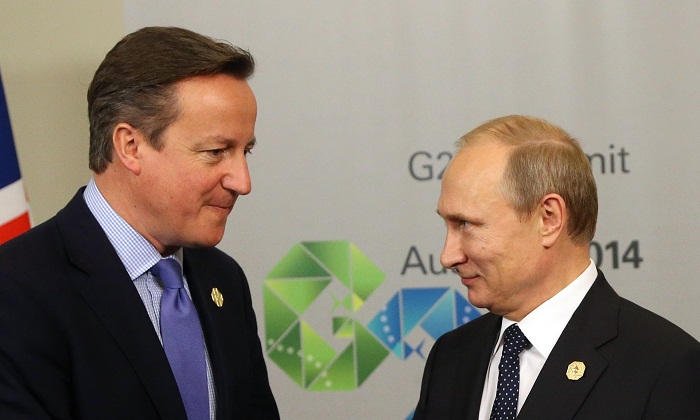Cameron made clear Britain’s continued opposition to the participation of Syria’s president, Bashar al-Assad – an ally of Moscow – in any postwar regime in Damascus, telling Putin the country needed “a government that all the Syrian people can support”.
Putin: `foreign experts` will examine black box from jet shot down by Turkey
The prime minister also fended off a demand by the Russian president that he help provide British expertise to investigate how a Russian military plane was downed by Turkish military in November.
The shooting down of the plane, and the death of a Russian military pilot has led to a collapse in Russian-Turkish relations, and Putin appeared to try to enlist British involvement in the investigation as a neutral observer.
With Turkey a key ally of Britain, Cameron is unlikely to want to help since it might end with the UK having to judge whether the Turks had acted improperly. The Russians are understood to want UK assistance to interpret data in the black box of the plane.
The Russian pilot was shot dead as he parachuted from the aircraft into Syria, while another serviceman died on a search-and-rescue mission launched to retrieve him and a second crewman. The Russian defence minister, Sergei Shoigu, delivered the black box to the Kremlin on Wednesday, but was told by Putin not to allow it to be opened until international experts were available to examine it in the hope they will confirm Moscow’s version of events.
A UK government statement said the two sides have agreed their countries should work together in the fight against Isis, but Downing Street gave few concrete examples of how this greater co-operation would work in practice.
Britain continues to be critical of the way the Russian air campaign is not directed against Isis but against Syrian rebel forces.
Russia continues to insist outside powers cannot decide the leadership of Syria, and it is for the Syrian people to decide its government. The issue of Assad’s role in any transitional government is the single biggest sticking point between Russia and Iran on the one hand, and the west on the other.
Talks are due to recommence in New York next week on how the peace process restarted in Vienna two months ago can be taken forward. There are also due to be planning talks on Friday between the UN, US and Russia.
Cameron and Putin agreed they needed to implement agreements already made, and work to a timeline for the establishment of a transitional Syrian government within six months, followed by presidential elections.
The spokesman said: “They noted the talks taking place in Riyadh, hosted by the Saudi Arabia government and bringing together opposition groups, with the prime minister reiterating that those signed up to the Geneva principles should be part of these talks”.
The Saudi talks are not being attended by the Kurds or the Syrian government, but are supposed to agree the negotiating team that would meet with the current Syrian government next year.
More about:
















































